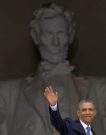Historian, Cure Thyself
Over at the Faculty Lounge, Saul Cornell has another post criticizing me. Like his previous post, Saul’s post is filled with overheated rhetoric – more on this below. He responds to a post I wrote about a different historical paper regarding historical method and freedom of the press. At the end of my post, I concluded it with a respectful line, which I wrote because I believe there is a gulf between legal scholars and historians about methodology. I wrote:
I must admit that perhaps I am not understanding the historians. Or perhaps they do not understand legal methods and legal meaning. Or perhaps the truth is somewhere in between.
Saul responds to this with a cheap shot. He writes:
To be fair, Rappaport confesses that his frustration may be a function of ignorance. Thus, he writes: “I must admit that perhaps I am not understanding the historians. ” On this point I think Rappaport is correct. The entire new originalist project rests on a series of profound errors—some philosophical and others historical.
I suppose Saul, given his intemperate writing, wouldn’t know a respectful line if it hit him in the face. Let me explain something else: you don’t return respect with derision. People will think you are a jerk .
With the formal matters put to the side, let me turn to substance, where Saul is once again profoundly ignorant. Saul writes:
Rappaport and most new originalists show little understanding of the complexity of Founding era legal culture. The result is a one dimensional account of legal meaning. Rappaport claims to be interested in using original methods, but he seems unable to grasp the most basic fact about the Founding era’s interpretive methods: there was no consensus on interpretive methods. This point has been demonstrated by a number of legal scholars, including Caleb Nelson and Larry Kramer. Historians have long appreciated this point, but as Martin Flaherty’s work demonstrates, most originalists seldom read deeply in the relevant historical scholarship and so are blithely unaware that few serious historians would accept that the Founding era was a period of constitutional consensus.
Once again, there is ignorance here, but not on my part. If Saul would simply read the works that he appears to be criticizing, he would see that my work with John McGinnis does recognize there may have been disagreements at the founding. We recognize that there was a traditional intentionalist interpretive methodology (associated with Blackstone), a seemingly distinct intentionalist interpretive methodology, which sought to look at legislative history, and a more textualist oriented methodology (sometimes associated with Alexander Hamilton’s bank opinion). Nor do we claim that these are the only positions that were held. See here starting on page 786.
While we have argued the Constitution should be interpreted in accordance with original methods, we have not argued what those methods were. We believe that this would involve an in depth and balanced inquiry into the historical materials that we have not engaged in. We do, however, believe that the leading methods at the time were all some version of originalism – original intent, original public meaning, etc.
It is not clear why Saul assumes that we believe we have already engaged in this task. Perhaps he is in the grips of a preconception about the originalist world that he cannot shake. But a little bit of old fashioned historical research – reading the articles one criticizes – might help. Historian, cure thyself!

